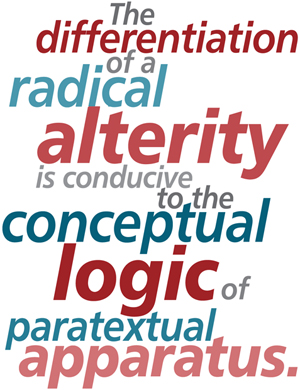Praxis, schmaxis
Looking to navigate the sea of scholarly jargon? Meet Pootwattle, the Virtual Academic.
By Brooke E. O’Neill, AM’04
Graphic by Allan Carroll

For academics-in-training, dissecting ponderous sentences is a rite of passage. Students then mimic the jargon they read, says Tracy Weiner, AM’86, associate director of the University’s Writing Program. Although some mimicking is all right, students should aim for clarity. So Weiner created the Virtual Academic, an online tool that generates sentences using words and phrases pervading academic journals. Since launching it in 2002 for the advanced writing course Academic and Professional Writing (“Little Red Schoolhouse”), Weiner has regularly updated the site with new lingo.
Virtual Academic visitors can ask Pootwattle, a fictional grizzled professor, to dream up an original sentence—for instance, “The disarticulation of the real has recently been consecrated as the illusion of normative value(s)”—or select words and phrases (“the gendered body,” “praxis”) to be incorporated into a line of academic-speak. Readers also can submit passages for the site’s Sentence of the Week feature, where Weiner critiques offending prose and offers suggestions for clearer syntax. Read on for a sample of her wisdom.
No. 1 writing gaffe: The same mistake—maybe tactical error would be a better term—that all advanced writers make: not thinking enough about your readers. … You become an expert, sometimes the expert, in your subject. But when that happens, after you’ve broken out the champagne and sent yourself flowers, it’s time to revisit your writing. …You have to start with what your readers know, and then explain your new ideas, your discoveries, and your theories in terms they’ll understand.
Equal-opportunity offenders: Every field has terms of art that can bewilder outsiders. Take this example from an article about public-health policy: “Lack of blinding in routine data collection remains a concern.” For readers in the field, that’s a judicious warning about how to collect valid data. For readers outside the field, it sounds like something that would happen in a dungeon.
Memorable Sentence of the Week: “Incorporating the affective/motivational properties in music perception into the work process could provide affective change in computer programming work.” The author’s got a great idea—maybe programmers would feel better if they could listen to some music—but the writing gets in the way.
